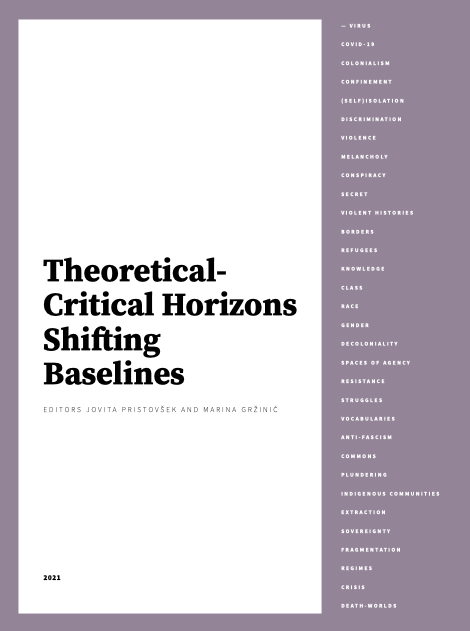 Theoretical Critical Horizons: Shifting Baselines was published as part of the Shifting Baselines, an international project by Goethe Institut, Association Nagib, and Austrian Cultural Forum, and is available here>
Theoretical Critical Horizons: Shifting Baselines was published as part of the Shifting Baselines, an international project by Goethe Institut, Association Nagib, and Austrian Cultural Forum, and is available here>
Edited by Jovita Pristovšek and Marina Gržinić
Authors: Marina Gržinić, Tjaša Kancler, Aleksandar Kraus, Shkëlzen Maliqi, Anyely Marín Cisneros, Dragomir Olujić Oluja, Stanimir Panayotov, Jovita Pristovšek, Šefik Tatlic